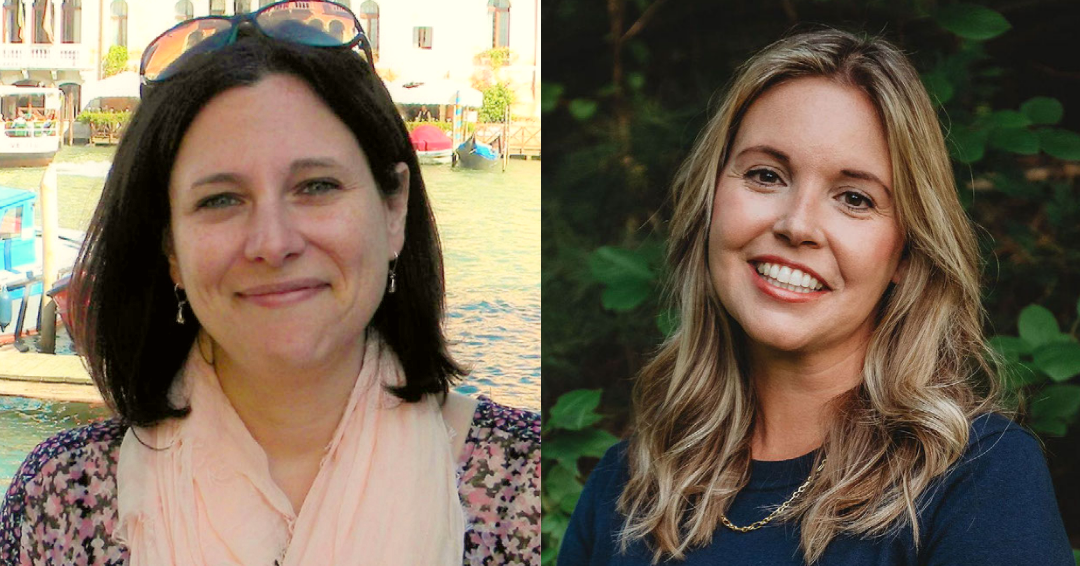
Two members of the Brown Psychiatry and Human Behavior faculty were awarded $3.6 million in research funding to test whether a brief, evidence-based protocol could reduce hospitalizations and suicidality for justice-involved youth in Rhode Island.
Assistant Professor of Psychiatry and Human Behavior Kathleen Kemp, Ph.D., and Associate Professor of Psychiatry and Human Behavior Jennifer Wolff, Ph.D., received notice of their award last month. An R01 from the National Institutes of Health, the five-year grant is administered through Rhode Island Hospital and Brown University.
Kemp, who serves as Director of the Rhode Island Family Court Mental Health Clinic, says her team began implementing mental heath and substance use screenings in 2013.
“Youth in the justice system were flagging on suicide ideation more often than kids in the community,” says Kemp, who also serves as a staff psychologist at Rhode Island Hospital’s Department of Child and Adolescent Psychiatry and the Bradley/Hasbro Children’s Research Center.
Around the same time, Wolff and her colleagues at Bradley Hospital were investigating a novel suicide intervention protocol for adolescents in inpatient settings called COPES (COping, Problem Solving, Enhancing Life, and Safety). Teens in crisis receive psychoeducation and skills training in the adolescent inpatient unit at Bradley, with four modules that help them identify triggers and create a list of coping strategies to take home.
“Our pilot work, involving a non-randomized trial of 463 adolescents in an inpatient setting, demonstrated that COPES was associated with improvements in post-discharge, service-related outcomes — including significantly delayed time to subsequent re-hospitalization and emergency department visits — compared to those who did not [complete the modules],” says Wolff, director of Bradley’s Adolescent Mood Clinic and a staff psychologist at Rhode Island Hospital and Bradley Hospital.
Since the pilot, more than 3,000 adolescents who visit Bradley’s emergency department for suicidality have participated in the COPES protocol.
“We found that even doing just one of these modules reduces the risk of hospitalizations,” says Wolff.
Kemp and Wolff’s R01 — titled "From Court to the Community: Improving Access to Evidence-Based Treatment for Underserved Justice-Involved Youth At-Risk for Suicide” — involves an initial year of baseline observation. Later, clinicians at nine randomized Rhode Island community mental health agencies will receive training in COPES; Kemp and Wolff hypothesize that the training program will improve treatment adherence and reduce trips to the emergency room.
“Community-based providers aren’t trained how to address suicidality,” says Wolff, adding that they’re trained to send adolescents to the emergency room for evaluation. “They don’t learn how to actually manage somebody and help them through that moment.”
And that creates a cascade of problems for families, says Kemp. Kids might not meet the threshold for hospital admission if they don’t have an imminent plan to commit suicide, so the families are discharged with a big hospital bill and, often, without a referral.
“And kids learn not to say anything,” Kemp adds. “So our goal is to be able to keep them in the community: to improve evidenced-based treatment for an underserved population, to keep kids in their homes whenever possible, and to reduce suicide.”
If community-based agencies care for families outside of a hospital setting, it would also reduce the demand for beds in local emergency departments, Wolff adds. And while Kemp, Wolff, and their researchers are focused on outcomes for justice-involved youth, their community-based partners also serve patients from all backgrounds, including those from racially and ethnically minoritized communities in Rhode Island.
“So if it improves outcomes for more kids,” Kemp says, “even better.”